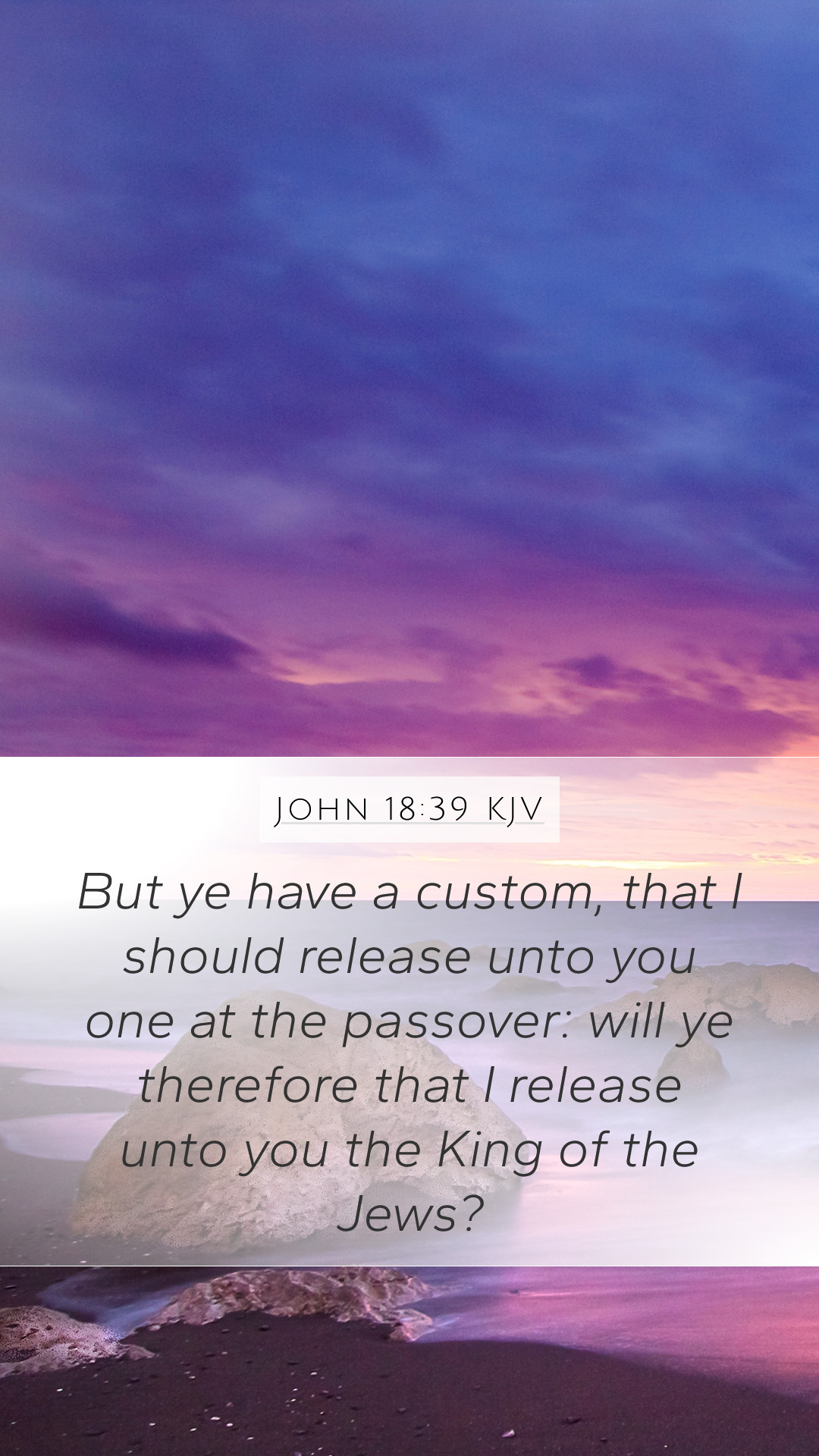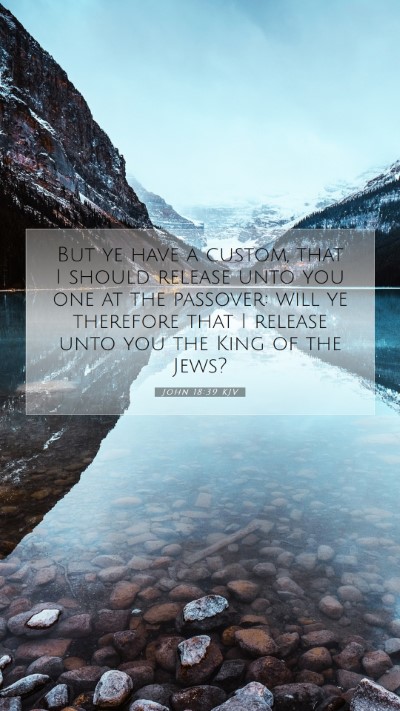Understanding John 18:39
In the Gospel of John, chapter 18, verse 39, we find a pivotal moment in the trial of Jesus Christ. The verse states:
"But you have a custom that I should release someone to you at the Passover. Do you want me to release to you the King of the Jews?"
This verse prompts deep reflection and examination, bridging significant theological points and historical context.
Verse Context
To understand John 18:39, it is essential to consider the surrounding events. This moment occurs during Jesus’ trial before Pontius Pilate, where political tensions and religious customs intersect.
Historical Setting
During Passover, it was customary for the Roman governor to release a prisoner as a gesture of goodwill to the Jewish people, which plays a crucial role in this narrative.
Bible Verse Meaning
The meaning of John 18:39 can be explored through various biblical commentaries:
Matthew Henry's Commentary
Matthew Henry emphasizes the irony present in this verse. Pilate, knowing the enmity against the Jewish leaders, offers to release Jesus, indicating the moral complexity of the situation. Henry points out that this moment illustrates how the people chose Barabbas over Jesus, showcasing the darkness of human decision-making in the face of divine truth.
Albert Barnes' Commentary
Albert Barnes elaborates on the significance of the "custom" mentioned in the verse. This tradition provides Pilate with an opportunity to distance himself from responsibility for Jesus’ fate. Barnes highlights how Pilate's question subtly points to Jesus' identity as "the King of the Jews," thereby affirming Jesus’ royal status, which the Jewish leaders would ultimately reject. This rejection is a vital theme in the Gospel narrative.
Adam Clarke's Commentary
Adam Clarke discusses the tension brewing between Roman authority and Jewish tradition. He explains that Pilate’s proposition reveals not only his political maneuvering but also the spiritual blindness of the crowd that would favor Barabbas—a thief and insurrectionist—over the sinless Messiah. Clarke suggests that this choice reflects human depravity and the rejection of divine grace.
Significance of the Verse
John 18:39 serves to highlight the broader theme of choice and rejection in the Gospel narrative:
- Human Choice: The choice presented by Pilate puts the people in a position to choose life and truth embodied in Jesus or death and rebellion in Barabbas.
- Rejection of Christ: This verse foreshadows the ultimate rejection of Jesus, a recurring motif throughout the Gospels.
- Prophetic Fulfillment: The fulfillment of Old Testament prophecies about the Messiah's rejection is evident here.
Bible Study Insights
In gathering insights from John 18:39 for Bible study groups, consider the following:
- Relevance Today: How do we respond to Christ today? Do we favor what is familiar and comfortable over the radical teachings of Jesus?
- Cultural Context: Understanding the customs of the time enriches our comprehension of the text.
- Discussion Points: What can we learn from the crowd's choice, and how does it apply to modern dilemmas in faith?
Cross References
This verse can be cross-referenced with:
- Matthew 27:15-26: Details of the customs surrounding Passover and the choice of Barabbas.
- Mark 15:6-15: Another account of this moment, emphasizing the people's choice.
- Luke 23:18-25: Luke’s perspective on the crowd's demand for Barabbas and the injustice of the trial.
Conclusion
In summary, John 18:39 serves as a critical moment in the Passion narrative, rich with meaning and implications for the reader. Through understanding this scripture, one gains insights into the complexities of human choice, the theme of rejection, and the fulfillment of prophecy. It invites believers to introspect their responses to Jesus and His teachings, fostering deeper engagement with the text.


